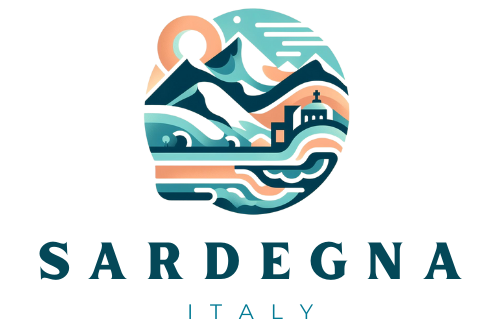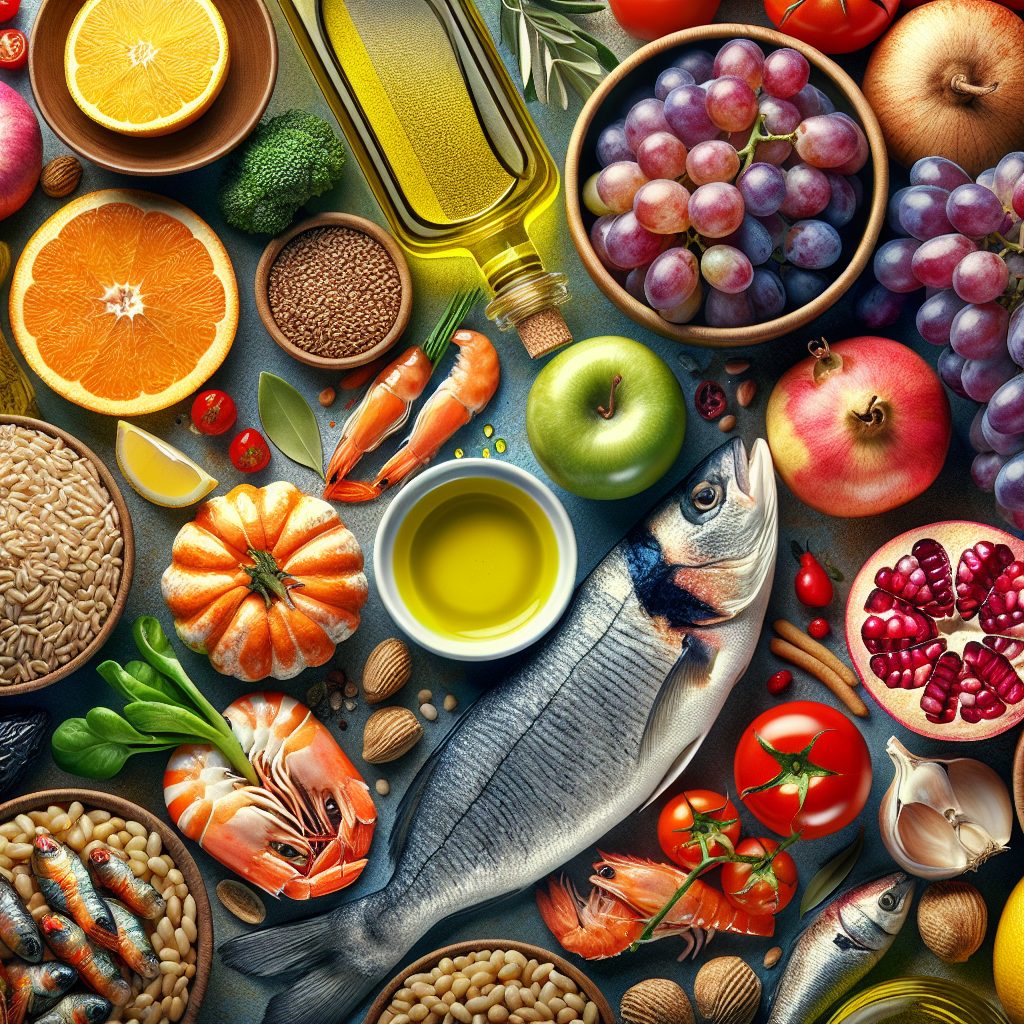The Mediterranean diet is a popular eating pattern that is hailed for its health benefits and has been associated with the longevity and well-being of people in the Mediterranean region. Sardinia, a beautiful Italian island located in the heart of the Mediterranean Sea, is not only known for its stunning beaches and crystal-clear waters but also for its unique take on the Mediterranean diet. In fact, Sardinia is recognized as one of the Blue Zones of the world, areas where people live exceptionally long lives. This intriguing fact sets the stage for exploring the specific impacts and unique features of the Mediterranean diet in Sardinia.
One of the key reasons behind the remarkable health and longevity of the Sardinian population is their adherence to the traditional Mediterranean diet. This diet is characterized by high consumption of fruits, vegetables, legumes, whole grains, and olive oil, while red meat and processed foods are limited. In Sardinia, the Mediterranean diet is further enriched by the use of locally grown produce, such as artichokes, tomatoes, and fava beans, which add a unique flavor profile to the traditional dishes. Additionally, the island’s proximity to the sea allows for the inclusion of fresh fish and seafood as essential components of the Sardinian Mediterranean diet. Now, let’s delve deeper into the key takeaways of this extraordinary eating pattern and discover why it is worth considering for your own well-being.
Key Takeaways
1. Sardinia, an island in the Mediterranean, is home to the world’s highest concentration of centenarians, and their longevity is attributed to the local diet.
2. The traditional Sardinian diet consists of whole foods such as whole grains, legumes, fruits, vegetables, olive oil, fish, and small amounts of meat, emphasizing a high intake of plant-based and unprocessed foods.
3. The Mediterranean diet followed in Sardinia is rich in antioxidants, omega-3 fatty acids, and fiber, promoting heart health, reducing the risk of chronic diseases, and supporting weight management.
4. Local Sardinian dishes, like minestrone soup, rely on seasonal and homegrown ingredients, adding variety and freshness to meals, while limiting the consumption of added sugars and processed foods.
5. The Sardinian lifestyle contributes to overall health, with factors such as regular physical activity, strong social connections, and stress reduction playing a significant role in the well-being and longevity of its residents.
What is the Key to Longevity? Exploring the Mediterranean Diet in Sardinia
The Rich History of Sardinian Cuisine
Sardinia, an enchanting Mediterranean island, is not only known for its breathtaking landscapes but also for its citizens’ remarkable longevity. Researchers have attributed this exceptional longevity to the traditional diet of the Sardinian people, which is often referred to as the Mediterranean diet.
Unveiling the Secrets of the Mediterranean Diet
A. Abundance of Fresh Vegetables and Fruits:
The foundation of the Mediterranean diet in Sardinia lies in its focus on consuming a variety of fresh vegetables and fruits. These nutrient-rich foods provide essential vitamins, minerals, and antioxidants, contributing to improved overall health and well-being.
B. Emphasis on Whole Grains:
Whole grains, such as whole wheat, barley, and oats, play a significant role in the Mediterranean diet in Sardinia. These grains are packed with dietary fiber, which aids in digestion, reduces cholesterol levels, and promotes heart health.
C. Incorporation of Legumes and Nuts:
Legumes and nuts, including beans, lentils, almonds, and walnuts, are staples in the Sardinian diet. These protein-packed sources not only provide essential amino acids but also offer numerous health benefits, including weight management and reducing the risk of chronic diseases.
D. Consumption of Fresh Fish and Seafood:
The proximity to the Mediterranean Sea grants Sardinians access to an abundant supply of fresh fish and seafood. These protein-rich sources, particularly rich in omega-3 fatty acids, contribute to improving cardiovascular health and reducing inflammation in the body.
E. Limited Red Meat Intake:
Unlike other western diets, the Sardinian diet restricts the consumption of red meat, focusing instead on lean meats like poultry and rabbit. This approach significantly reduces the intake of saturated fats, helping to lower the risk of heart disease and other related ailments.
The Health Benefits of the Mediterranean Diet
The Mediterranean diet in Sardinia offers an array of health benefits that contribute to an extended lifespan:
A. Protection Against Chronic Diseases:
The nutrient-dense foods found in the Mediterranean diet are known to have a protective effect against chronic diseases, including heart disease, type 2 diabetes, and certain types of cancer.
B. Improved Brain Health:
Studies have shown that adhering to the Mediterranean diet is linked to better cognitive function and a reduced risk of neurodegenerative diseases, such as Alzheimer’s disease and dementia.
C. Weight Management:
Due to its emphasis on whole, unprocessed foods and healthy fats, the Mediterranean diet can support weight management and help prevent obesity.
D. Enhanced Gut Health:
The high fiber content, along with the inclusion of fermented foods like yogurt, in the Mediterranean diet promotes a healthy gut microbiome, which is crucial for digestion and overall well-being.
Simple Tips to Embrace the Mediterranean Diet in Sardinia
- How can I incorporate more fresh vegetables and fruits into my daily meals?
- What are some delicious whole grain options to include in my diet?
- What are creative ways to incorporate legumes and nuts into various dishes?
- How can I choose and prepare fresh fish and seafood in a Mediterranean style?
- What are some flavorful alternatives to red meat?
Frequently Asked Questions
1. What is the Mediterranean diet in Sardinia?
The Mediterranean diet in Sardinia refers to the traditional eating habits followed by the inhabitants of Sardinia, an Italian island located in the Mediterranean Sea. It primarily includes plant-based foods, such as fruits, vegetables, whole grains, legumes, nuts, and olive oil. Additionally, it involves moderate consumption of fish, dairy products, and red wine.
2. How does the Mediterranean diet benefit health?
The Mediterranean diet has been associated with numerous health benefits. It is known to reduce the risk of heart disease, lower blood pressure, improve insulin sensitivity, promote weight loss, and enhance cognitive function. Its emphasis on fresh, unprocessed ingredients, coupled with the consumption of healthy fats from olive oil and fish, contributes to these positive effects.
3. Are there specific foods to be avoided in the Mediterranean diet in Sardinia?
While the Mediterranean diet focuses on wholesome foods, some items are limited or avoided. These include processed meats, refined grains, added sugars, and highly processed snack foods. The goal is to prioritize natural, nutrient-dense options while minimizing the intake of processed and unhealthy choices.
4. Can vegetarians or vegans follow the Mediterranean diet in Sardinia?
Absolutely! The Mediterranean diet in Sardinia can be customized for vegetarians or vegans. The diet’s foundation, based on plant-based foods, is perfectly suited for those who do not consume animal products. Plant proteins like legumes, tofu, tempeh, and nuts can easily replace animal proteins while maintaining the principles of the Mediterranean diet.
5. Is the Mediterranean diet suitable for weight loss?
Yes, the Mediterranean diet can be effective for weight loss. Its focus on whole, unprocessed foods with emphasis on fruits, vegetables, and whole grains, along with healthy fats and protein sources, makes it a balanced and satisfying approach to weight management. Coupled with regular exercise, this dietary pattern can support healthy weight loss.
6. Are there any age restrictions for following the Mediterranean diet in Sardinia?
No, the Mediterranean diet in Sardinia is suitable for individuals of all ages. In fact, it is often considered ideal for promoting healthy growth and development in children. Likewise, it offers numerous benefits for adults and is even associated with healthy aging due to its positive impact on cardiovascular health, inflammation, and cognitive functions.
7. Is it costly to follow the Mediterranean diet in Sardinia?
Following the Mediterranean diet in Sardinia doesn’t have to be expensive. It primarily relies on fresh, seasonal, and locally available ingredients. By purchasing these items in their whole form and planning meals ahead, it can be a cost-effective way of eating. Moreover, it encourages reducing reliance on processed and convenience foods, which often come with a higher price tag.
8. Can the Mediterranean diet in Sardinia accommodate individuals with dietary restrictions?
Yes, the Mediterranean diet can be accommodated for individuals with dietary restrictions. With its emphasis on whole foods and variety, it can easily be adjusted to fit specific needs, such as gluten-free, lactose-free, or nut-free requirements. Consulting with a registered dietitian or nutritionist can help tailor the diet accordingly.
9. How does the Mediterranean diet in Sardinia compare to other popular diets?
The Mediterranean diet in Sardinia stands out due to its rich cultural history and scientific evidence supporting its health benefits. It differs from many commercial diets by focusing on overall lifestyle rather than strict rules or restrictions. By prioritizing whole, unprocessed foods and providing a balanced macronutrient profile, it offers a sustainable and enjoyable approach to eating.
10. Are there any potential drawbacks to the Mediterranean diet in Sardinia?
While the Mediterranean diet has numerous benefits, it may not be suitable for everyone. Individuals with certain medical conditions, dietary allergies, or specific dietary requirements should consult a healthcare professional or registered dietitian before adopting this approach. Personal preferences and cultural food traditions should also be taken into account to ensure a diet that is both enjoyable and nutritionally adequate.
Final Thoughts
The Mediterranean diet in Sardinia is not just a way of eating; it represents an entire lifestyle, rooted in rich culinary traditions and a love for fresh, wholesome ingredients. This dietary pattern showcases how nutritious and delicious food can be combined to promote optimal health and longevity.
By embracing the Mediterranean diet, individuals have the opportunity to incorporate more plant-based foods, healthy fats, and mindful eating practices into their daily lives. Whether aiming for better heart health, weight management, or overall well-being, the Mediterranean diet in Sardinia provides a flexible and enjoyable framework for achieving these goals. So why not embark on a culinary journey to Sardinia, and discover the incredible benefits of the Mediterranean diet?




